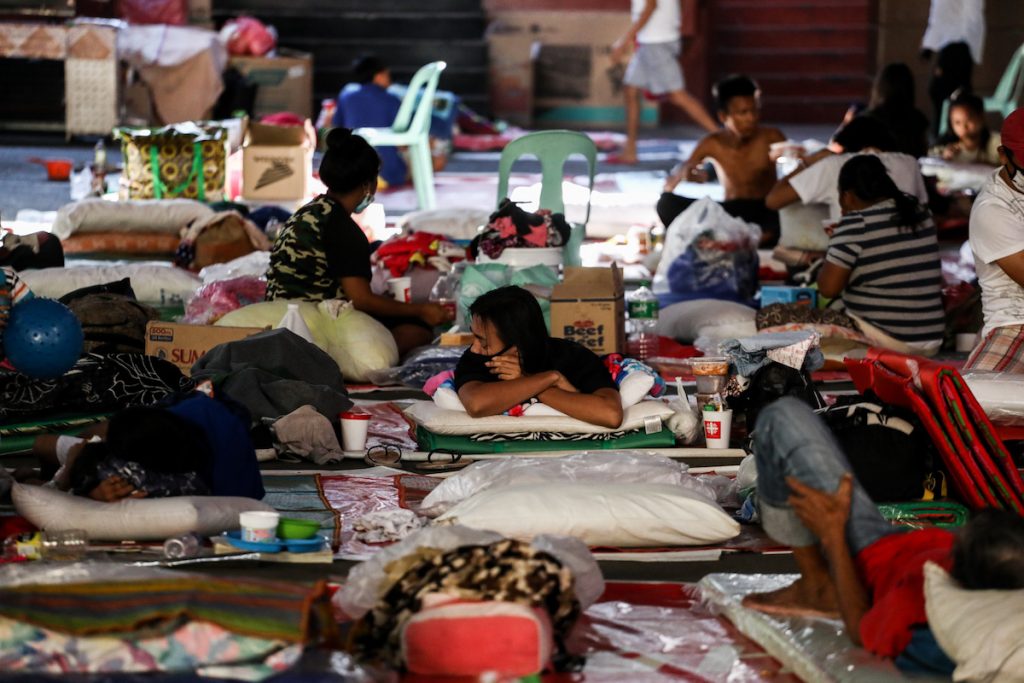
Reflection for the 5th Sunday in Ordinary Time (Cycle B)
For several generations, the year 2020 will evoke memories of pain, duty and hope.
No one alive today will most likely forget the onslaught of a virus that seriously disrupted and compelled the rethinking of “modern civilization,” on how the life of each and every individual dwelling on any continent was turned upside-down by the lockdown of the world.
It may be a rare family that could claim not suffering from the loss of a loved one, of a means of livelihood, or of brighter prospects and opportunities for the future.
In a single historical event, a microscopic organism succeeded in wreaking havoc and in compelling us to ultimately question our once-formidable notions of sustainable prosperity, education and health.
Like Job, we lament and cry over a corporal existence stripped of purpose and meaning. The pandemic has laid bare the reality that we have been blindly living lives which are nothing better than slavery and hired drudgery.
Are we as children being fed the finest of food and drink, educated in the best schools, and offered the best conditions of health, so that we are made capable of surpassing others in possessions, prestige and power? Is life “only about money?” Have we been mentally and physically conditioned to “compete against” rather than “collaborate with” others, making sure that we “have the backs of the poor to step on” as we climb and stand on the pedestal of success? When have we been trained to believe that we are “responsible for” others and that we “should serve” them?
If neither day nor night brings joy but only disillusionment, despair or worse, the strong temptations to simply “put an end to it all,” then we cannot place the blame of our existential angst singularly at the feet of politicians, professionals and tycoons. We must learn to primarily blame ourselves, and the lack of our recognition of the fundamental duty as a decent human being to daily offer and bring hope to those who yearn for it.
In a timeless lesson for the ages, our Lord has shown the way how everyone should heal the broken-heartedness of people. Through the solemn commitment of Abba, the Christ who lived in first-century Palestine has transcended the wisdom of many intellectuals to prove that a meaningless human life can be given meaning, provided we mirror the compassion of our God, caring for each and every person, “calling each one by his or her name;” and provided we enforce his justice, destroying unjust structures, supporting the heavenly Father in the “upliftment of the lowly” and in the “humbling of the wicked.”
This is the Christian duty of which the apostle Paul speaks. The duty to bring hope, is not work we can choose not to do, and it is not work unworthy of punishment or adverse consequences if left undone. The work of building and serving the kingdom of God is not an option, but it is also a task for which we will never ever be qualified to do. It simply must be done with loving trust in the graces of our Father in heaven. We deserve the oppressive world we have inherited and perhaps unknowingly are perpetuating, because we have persistently refused to recognize this duty, or have cunningly avoided its responsibilities while abusing its privileges.
Paul further elaborates that this virtue of supernatural charity requires the subordination of oneself in humility, poverty and obedience, so that all having done their respective duties, may have hope in sharing in the abundance of God’s eternal blessings. But how can we with our human limitations maintain such faithfulness and selflessness?
In the Gospel, Jesus exemplified for us how the mindset of an enduring service can be so strengthened. Consider how tirelessly he went about his duty of bringing hope, because he knew it was the reason and purpose of “why he came.” But he also demonstrated for us the necessity of – or the “re-creation” of oneself – through prayer. Prayer as a divine dialogue helps sustain charity, reminding us through God’s holy presence to remain humble, poor and obedient in support of the performance of one’s duty for him; it is the secret to Jesus’ tirelessness!
See therefore how the good works of our service actualizes the love we develop in prayer, and how prayer in turn sustains us in the trials and difficulties we encounter when doing such good works.
It is a serious error therefore to suppose that we can pray for the rest of our days while being uninvolved in social action, or to presume that social action does not need the habit of prayer. In a lifelong mission which offers no recognition nor rewards but only the promise of joining our Master in paradise someday, we run the risk of becoming embittered and broken-hearted ourselves. It is a risk in the life of ministry that we cannot afford to take.
Brother Jess Matias is a professed brother of the Secular Franciscan Order. He serves as minister of the St. Pio of Pietrelcina Fraternity at St. Francis of Assisi Parish in Mandaluyong City, coordinator of the Padre Pio Prayer Groups of the Capuchins in the Philippines and prison counselor and catechist for the Bureau of Jail Management and Penology.
The views expressed in this article are the opinions of the author and do not necessarily reflect the editorial stance of LiCAS.news.
Source: Licas Philippines
0 Comments